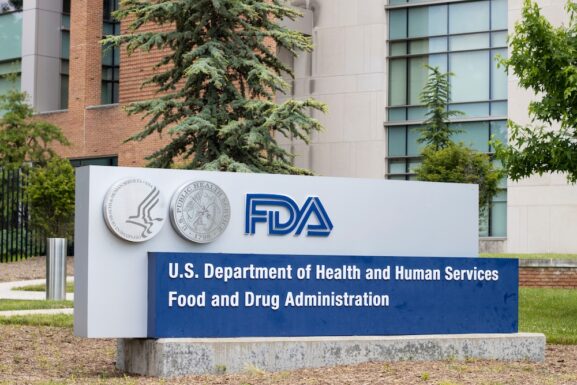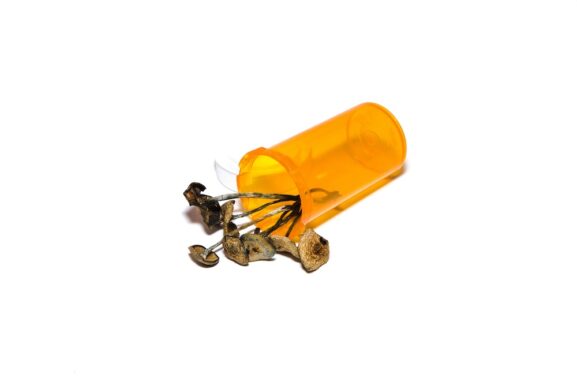Do Shrooms Show Up On A Drug Test? Here’s a Complete Breakdown
If you have interest in taking psilocybin mushrooms (also known as magic mushrooms or simply “shrooms”), you might be wondering if they will show up on a drug test.
For the average person, psilocybin and psilocin may be mostly undetectable in urine, saliva and blood tests after about 24 hours. However, there are a few variables that impact how psilocybin and all drug compounds stay in your system, but the most important is time.
While these compounds are excreted from the body fairly quickly, if a psilocybin- and psilocin-specific drug test is given within 24 hours magic mushrooms may be detected. The more time that passes between consumption and testing, the lower the chances mushrooms will show up on a drug test. The more frequently you consume shrooms, the higher the chance that they would show up on a drug test screening for them.
RELATED: Looking for a psilocybin retreat? Click here to find top rated psilocybin retreats near you
An Overview of Drug Tests And Magic Mushrooms
| Test Type | Magic Mushrooms Detectable? | Detection Window | Additional Information |
| Urine Test | Specialized tests only | Up to 24 hours | Standard panels don’t typically include psilocybin. |
| Blood Test | Specialized tests only | A few hours | Less common and has a short detection window. |
| Saliva Test | Rarely, with specialized tests | Up to 24 hours | Psilocybin is not commonly screened with saliva tests. |
| Hair Follicle Test | Yes, with specialized tests | Up to 90 days | Expensive, not standard, but can detect long-term usage. |
| Sweat Patch Test | Rarely | Varies | Not standard and rarely used for psilocybin detection. |
As you can see, the sweat patch test is the least common. The types of jobs that use the sweat patch test are child protective services, law enforcement, high-security jobs (such as aviation or other heavy machinery), rehab centers etc.
Here’s a Breakdown of the Most Common Drug Tests Based on Industry
| Position/Industry | Common Tests | Notes |
| Probation | Urine Tests, Breathalyzer Tests, occasionally Hair Follicle Tests | Affordable, effective for recent drug use, breathalyzers for alcohol |
| Military | Urine Tests, Random Testing (usually urine-based) | Effective for a wide range of substances, random testing as a deterrent |
| Professional Employment | Urine Tests (Pre-Employment, Random Testing), Hair Follicle Tests, Blood Tests (safety-sensitive jobs) | Balance of cost and effectiveness, more stringent testing for safety-critical rolesHealthcare Industry |
| Healthcare Industry | Urine Tests, Blood Tests | Effective for a range of substances, blood tests for precise measurements |
| Sports/Athletics | Urine Tests, Blood Tests, occasionally Hair Follicle Tests | Detection of both recent and long-term drug use, blood tests for specific drugs like EPO |
| Rehabilitation Centers | Urine Tests, Breathalyzer Tests, Saliva Tests | Ease of administration, immediate results, non-invasive saliva tests |
| Academic Institutions | Urine Tests, occasionally Saliva Tests | Less invasive tests preferred, focus on drug prevention |
| Government Agencies | Urine Tests, Hair Follicle Tests, Blood Tests | Typically used for pre-employment and random testing, specific tests for high-security positions |
Dr. Amir Chalaby of Katharsis Journeys in the Netherlands gives a great overview of magic mushrooms and typical drug tests. She says, “Magic mushrooms and its alkaloids are not part of standard routine drug tests. Which substances are included in the standard drug tests varies from country to country and also on which setting they are performed and for what reason. Commonly the panel of drugs tested for consist of Amphetamine, Barbiturates, Benzodiazepines, Cocaine, Methadone, Methamphetamine, Opiates, Oxycodone, Phencyclidine, Propoxyphene, Cannabinoids (THC), and Tricyclic Antidepressants or their metabolites. The standard testing method is by analyzing a urine sample.”
What Do Mushrooms Show Up As On A Drug Test?
Psilocybin is the primary psychoactive compound in magic mushrooms. It’s largely responsible for the psychedelic experience that these mushrooms provide (though there are many active compounds in magic mushrooms).
When ingesting psilocybin from magic mushrooms, most of it is broken down by the body into a metabolite called psilocin. This acts primarily on serotonin receptors in the brain to produce its effects. Drug tests can screen for both psilocybin and psilocin.
LEARN: More About Psilocybin
Psilocybin And Standard Drug Test Panels
Drug tests screen for a variety of different substances, with samples coming from urine, blood, saliva, hair, or even sweat.
These tests can look for a specific substance or for a group of substances (often referred to as “panels”). The most commonly used panels screen for 5, 10 or 12 different substances.
For example, the 5-panel test is perhaps the most common panel, and it screens for:
- THC (a psychoactive compound in cannabis)
- Cocaine
- PCP (phencyclidine or phenylcyclohexyl piperidine)
- Amphetamines
- Opioids
A 10-panel test, which is less common to use, would look for the above mentioned substances, in addition to:
- Benzodiazepines
- Barbiturates
- Methadone
- Propoxyphene
- Methaqualone
Following that, a 12-panel drug test looks for the above ten substances plus:
- MDMA (Methylenedioxymethamphetamine)
- Oxycodone
While standard panels can be expanded to include psilocybin and psilocin, most employers and government agencies do not include them. “For most companies, testing for psilocybin or psilocin is not practical or affordable,” said Dr. Lewis Jassey, Doctor of Osteopathic Medicine and medical director at Leafwell.
Does Psilocybin Show Up On Urine, Blood Or Saliva Tests?
Urine testing is perhaps the most common way of screening for drugs in the United States. Most of the standard panels above use urine tests, and won’t typically include psilocybin or psilocin. With that said, detection of some compounds may potentially be present for up to 24 hours after ingestion.
“Your gastrointestinal tract absorbs psilocybin about 10-30 minutes after ingestion, assuming you administer it orally via mushrooms,” explained Dr. Jassey. “The liver then converts psilocybin to psilocin quite rapidly, and almost all psilocybin is converted [to psilocin].”
After about three hours, most of these compounds have been excreted.
“Psilocin is typically completely cleared from your body within five hours, and psilocybin after 15 hours” said Dr. Jassey. This means that blood or saliva tests won’t typically detect psilocybin unless the test is done within a few hours of consumption and psilocybin is part of the panel used for the test.
The takeaway? “Psilocybin mushrooms are not physically addictive and tend to be used only once in a while, not repeatedly,” said Dr. Jassey. “This makes psilocybin or psilocin very difficult to test for on most drug tests.”
Does Psilocybin Show Up On A Hair Drug Test?
Collecting a hair sample is another way to perform a drug test. And, unlike blood and urine tests, these drug tests may detect substances like psilocybin in your hair follicles for up to 90 days.
“A hair test could detect the presence of psilocybin for up to 90 days after use, but such tests are infrequently employed and are not totally reliable,” added Dr. Jassey. “This makes hair follicle testing expensive and time-consuming.”
Since hair drug tests are more costly, they are not as popular as urine and blood tests. And, like urine and blood tests, hair follicle testing typically only screens for the common panels outlined above.
RELATED: How Long Do Shrooms Stay In Your System?
Does Psilocybin Show Up On A Military Drug Test?
For those serving in the U.S. military, members receive a random drug test at least once per year.
According to the Department of Defense’s Technical Procedures for the Military Personnel Drug Abuse Testing Program, active military service members do not typically receive tests for psilocybin. However, there is current testing for:
- Amphetamines
- Designer Amphetamines
- Benzodiazepines
- Cannabinoids (Cannabis)
- Synthetic Cannabinoids
- Cocaine Metabolites
- Morphine / Codeine
- Heroin metabolite 6-monoacetylmorphine
- Oxycodone / Oxymorphone
- Hydrocodone / Hydromorphone
While psilocybin is not part of standard military drug testing, if there’s a belief that a service member is using magic mushrooms, ordering a special test may occur.



